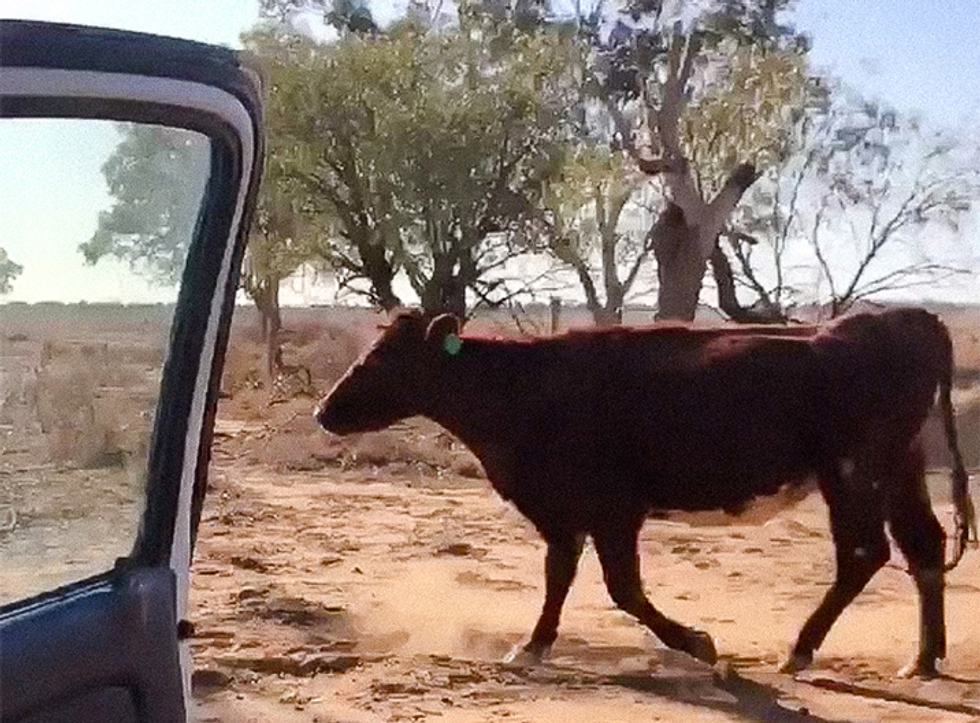COMMENT
Viral trends are everywhere. People are willing to do anything to get attention online. It seems like as long as you call something a "challenge" you automatically force hapless bloggers to roll the dice and participate in it with no thought of the consequences. Dozens of people have been hospitalised or seriously injured as a result of their idiotic attempts to replicate trending fads.
If "the Instagram Challenge" was a person, it would be a youngster whose catchphrase was "Hold my beer, I must do it!" – someone reckless, unable to resist a challenge, with a short memory, too much ego and a very short life expectancy.
Instagram challenges are not a new phenomenon. Some are dangerous, others are dumb, and some are simply disgusting. Horrified parents remember the early iterations of viral fads like "Cinnamon Challenge", which involved swallowing a tablespoon of the spice in 60 seconds without water. Or "The Fire Challenge", which asked participants to douse themselves in lighter fluid and literally set themselves on fire. Or, probably the stupidest challenge ever attempted, "The Corn Drill Challenge", which involved eating an entire corn cob as quickly as possible by attaching it to the end of a power drill and spinning it across one's teeth.
Corn drill challenge win/failwww.youtube.com
In July 2018 as the norther summer kicked off, along with the usual advice to stay hydrated, put on sun lotion and not to drink to excess, police around the world were warning: Don't jump out of a moving car and dance on the road.
All credit goes to Canadian superstar Drake, whose hit "In My Feelings" generated a viral craze of the same name. The "In My Feelings Challenge", also known as the "Kiki Challenge" or "Do The Shiggy", went viral in July after Instagram comedian Shiggy posted a video on his profile. The challenge involves stepping out of a slow-moving car and dancing alongside it to Drake's single, while the car continues moving. Since the video was posted, social media sites have been flooded with videos of young people dancing and doing the exact same moves as Shiggy. In just one month, almost 350,000 posts with the #kikichallenge hashtag and more than 568,000 posts with the #inmyfeelings hashtag were uploaded to Instagram. Even celebrities such as Will Smith and Ciara posted footage of themselves doing silly dances to the hit song.
And then, it wasn't silly anymore. Jaylen Norwood, 22, was hit by a car in Florida as he attempted the challenge. Another woman was targeted by thieves. After multiple people attempting the viral dance were injured, police issued a plea to people to stop jumping out of their cars to garner a few seconds of viral fame. According to The Guardian, countries such as Spain, the United States, Malaysia and the United Arab Emirates, have warned people may face criminal charges if caught in the viral act.
So, can good come from a viral challenge? As wannabe Insta-stars were jumping out of cars for likes, retweets and shares mid-year, a young farmer used the challenge as an opportunity to draw attention to the drought devastating the Australian bush. Al Marshall, from Burren Junction in western NSW, put a twist on the challenge by opening his door and filming one of his cows bobbing its head to the beat as it followed his truck stacked with hay across the paddock to the feeding ground, as reported by the Daily Telegraph. Although the song in the background wasn't the Drake's hit, the video had the same viral impact and swept the globe in a few days. And he did it without breaking a limb or a law.

The 2018 drought is one of the worst on record. As a result of the video, thousands of social media users contributed to relief efforts by sharing Marshall's video on Facebook, Twitter and Instagram with a link to a charity that supports Australian farmers. His video is proving that viral challenges can have benefits. It showed that although the stupidity and risks of viral challenges are there for everyone to see, the power of the internet to do good should not be forgotten.
Drought support aside, what draws people to do challenges that seem, to the outside observer, such an obviously dumb idea?
Angela Dobele, an Associate Professor of Marketing at Royal Melbourne Institute of Technology said the behaviour was "risky enough to be entertaining but not dangerous enough to put people off". People can't resist the viral lure and take part in the challenges because "at their core, people want to belong," she said. We all want "to be seen as part of a popular group or trend, and we don't think of the consequences because we're busy trying to be a part of it."
Maybe cinnamon doesn't sound hazardous, but isn't the possibility of being hit by a car, or losing all your teeth in your early twenties too risky? And, come on: when even a cow does the "Kiki Challenge", maybe it's time to stop.



Cultural ping pong: Dancing on the edge of two worlds